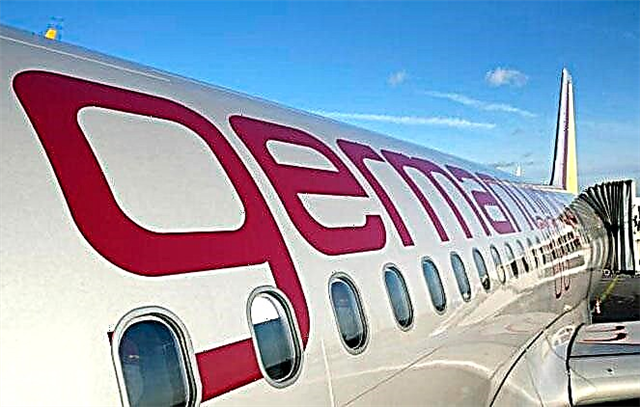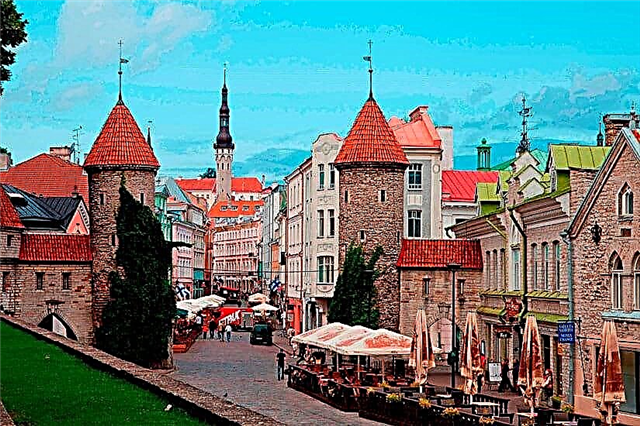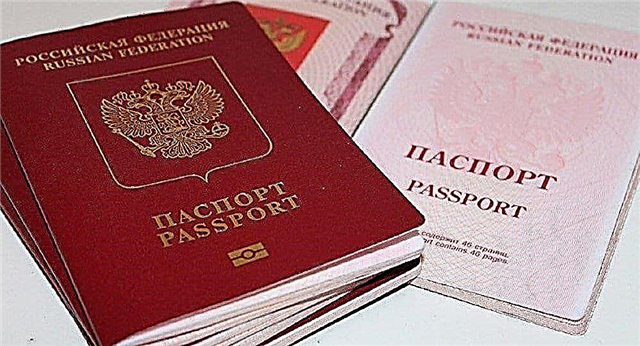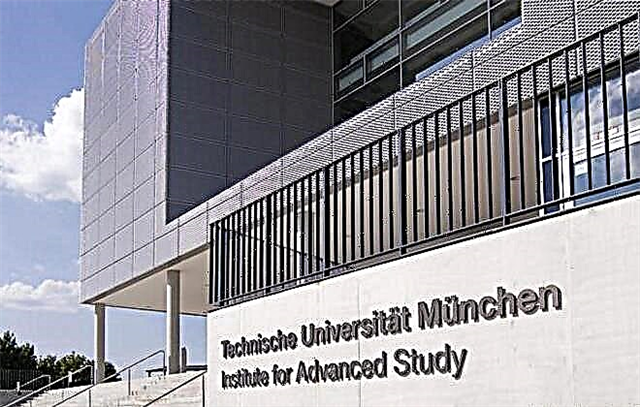Munich is the largest city in Bavaria, a famous cultural and university center. Its universities train specialists and researchers in various fields - from the exact sciences and nuclear research to economics and art. Getting a prestigious education and a European-style diploma are excellent opportunities that the universities of Munich provide.

Benefits of studying in Munich
Munich's educational and scientific institutions are known all over the world. Among the alumni of the Ludwig Maximilian University of Munich are 13 Nobel laureates in physics and chemistry.
The Technical University of Munich has its own tokamak (chamber with magnetic coils for holding plasma) ASDEXU, an experimental nuclear reactor and a particle accelerator.
The Max Planck and Heinz Mayer-Leibniz Institutes conduct cutting-edge research in various fields.
The Bavarian Academy of Sciences is located in Munich. In addition, there are educational institutions for those wishing to study medicine, art, economics, sociology and other disciplines. More than 80 thousand students study in Munich, about 15% of them are foreigners. There are public and private universities, business schools and language courses in the city.
In many faculties of Munich universities, instruction is conducted not only in German, but also in English.
State universities
From 2021, tuition in German at state universities in Germany is free. But even if you study at an educational institution on a budget, this does not save you from paying semester fees - compulsory contributions to pay the administrative costs of the university and the student union, as well as to issue a student ticket for all types of public transport. The contribution amount in Bavaria is 129.40 €, the fee is collected before the start of each academic semester.
In some universities, programs that are taught in English may be paid.
| Name | Faculties | Level of education and specialties in English | Tuition fees in English |
|---|---|---|---|
| Ludwig Maximilians University of Munich (Ludwig Maximilians Universität) | Catholic theological Protestant theological Legal Faculty of Business Administration Economic Medical Veterinary Faculty of History and Art Philosophical Psychology and education Culturological Faculty of Languages and Literature Faculty of Social Sciences Faculty of Mathematics, Informatics and Statistics Physical Faculty of Chemistry and Pharmacy Biological Faculty of Geosciences | Master's degree: American history, culture and society Astrophysics Biochemistry Data science Economy Learning English Epidemiology Evolution, ecology and taxonomy Geo- and paleobiology Geology Geomaterials and geochemistry Geophysics Human biology - principles of health and disease Logic and philosophy of science Media, management and digital technologies Meteorology Molecular and Cell Biology Neurocognitive psychology Neurosciences Physics Plant science Master's Program in Psychology Quantitative Economics Software Theoretical and mathematical physics Executive Master of Business Administration (Master of Business Administration) | Free for all specialties MBA: 12,000 € per year 20,000 € per year |
| Technical University of Munich (Technische Universität München) | Architectural Chemical Faculty of Electrical Engineering and Information Technology Engineering Faculty of Civil Engineering and Environment Mechanical engineering Mathematical Medical Faculty of Physics Faculty of Sports and Sports Medicine Faculty of Pedagogy Business Administration Faculty Economic Weihenstephan Science Center for Food, Land Use and Environment | Master's degree: Aerospace engineering Undergraduate: | Masters: $ 38,520 for the entire course Undergraduate: Free |
| University of Munich Bundeswehr (Universität der Bundeswehr München) | Faculty of Technology Faculty of Applied Sciences Faculty of Further Education | Undergraduate: Aeronautical engineering Mechanical engineering Computer Engineering and Communication Technology Military equipment Industrial engineering Master's degree: | Is free |
| Munich University of Political Science (Hochschule für Politik München) | Faculty of Political Science Faculty of Political Technology | Undergraduate: Political Science (modules in English) Master's degree: Politics and technology | Is free |
| Munich University of Applied Sciences (Hochschule für angewandte Wissenschaften München) | Architectural Faculty of Civil Engineering Mechanical engineering Electrotechnical Faculty of Printing and Media Technologies Faculty of Applied Sciences and Mechatronics Faculty of Computer Science and Mathematics Geographic information Industrial Engineering Faculty of Business Administration Faculty of Applied Social Sciences Faculty of Arts Faculty of General and Interdisciplinary Studies Faculty of Tourism | Master's degree: Master of Paper Technology Business administration | € 10,000 for the entire course Is free |
| Munich University of Television and Film (Hochschule für Fernsehen und Film München) | Faculty of Film and Television Films Faculty of documentary and television journalism Faculty of Film and Media Management Scriptwriter Training Faculty Faculty of training cameramen Criticism of theater, cinema and television (additional course) | Training in German only | Is free |
| Munich Higher School of Music and Theater (Hochschule für Musik und Theater München) | Faculty of Musical Instruments Ballet Academy Faculty of Vocal and Theater Faculty of Art and Education School Music Faculty Faculty of Church Music Jazz Institute Faculty of Historical Practice of Performance Faculty of Composition and Conducting Faculty of Culture and Media Management Faculty of Musicology Faculty of Teaching Music | Master's additional course for students of the Faculty of Musical Instruments | 1,500 € per semester |
| Munich Academy of Arts (Akademie der Bildenden Künste München) | Faculty of Liberal Arts Faculty of art history Faculty of design Faculty of Architecture and Art Faculty of Visual Design and Art Therapy | Training in German only | Is free |
Private educational institutions in Munich
In private universities in Munich, you can get education for demanded professions in the field of economics, finance and multimedia. Some universities offer rare specialties - for example, computer game design, history of medieval philosophy (including esotericism), multilingual English-German-Chinese translation, or Ukrainian studies.
There are two Catholic educational institutions in Munich, which are sponsored by church funds, so you can study there for free.
| Name | Faculties | Level of education and specialties in English | Tuition fees in English |
|---|---|---|---|
| Catholic University of Applied Sciences (Katholische Katholische Stiftungshochschule) Sponsored by the Catholic Church. | Faculty of Social Work Faculty of Nursing and Nursing Faculty of Religious and Church Education | Undergraduate All specialties Additional courses: English (for students in German), Spanish, Turkish Introduction to Biblical Languages (Hebrew, Greek) | Is free 20 € for each course |
| Macromedia Hochschule für Medien und Kommunikation | Faculty of Management Faculty of Film and Television Faculty of Journalism Faculty of Media and Communication Design Faculty of Media Management | Undergraduate: Media and design Film directing Media and communications management International management Master's degree: | Undergraduate: first installment 15,000 €, then 500 € per semester for all specialties Master's: first installment 15,000 €, then 500 € per semester for all specialties |
| Munich Business School | Specialties: International Business Administration Sports Management and Communication General management MBA (Master of Business Administration) DBA (Doctor of Business Administration) International Management MBA | Undergraduate: International Business Administration Master's degree: Taught in English only: | 24,000 - 36,400 € for the entire course |
| Munich University of Applied Linguistics (Hochschule für Angewandte Sprachen München) | Faculty of International Business Communication Faculty of International Media Communication Translation Faculty (German, English, Chinese) | Master's degree Translator - German-Chinese Double Degree | Entry fee 375 € Tuition 390-1 200 € per month |
| Munich University of Philosophy (Hochschule für Philosophie München) Sponsored by the Order of the Jesuits | Faculty of Philosophy | Study in German | Is free |
| Ukrainian Free University of Munich (Ukrainische Freie Universität München) | Faculty of State and Economic Sciences Faculty of Ukrainian Studies Philosophical faculty | Master's Courses: All Specialties Doctorate: all specialties | Master: entrance fee 100 €, 600 € per semester Doctorate: entrance fee 100 €, 600 € per semester |
| University of Media and Design (Mediadesign Hochschule für Design und Informatik) | Faculty of Media Faculty of Game Design and Animation Faculty of Fashion Faculty of Communications Management | Bachelor: all specialties Master's in Media and Communication Management | Bachelor: 5000–10000 € per year Master: 10,000 € per year |
Admission to the University of Munich

The system of German education differs from that adopted in the post-Soviet states. German schoolchildren have been studying for 13 years and for the last two years they have been undergoing training, which corresponds to the first courses of universities in the CIS countries. Therefore, for applicants from the countries of the former USSR, there are two ways to enter German universities:
- After receiving a certificate of complete secondary education or a diploma from a technical school, they can enter a university in their own country, unlearn the first two courses, and then apply for admission to a German university of the same profile.
- Having a complete secondary education in the CIS countries, take a special course for admission to the university (Studienkolleg) lasting 2 semesters.
Studienkolleg teaches all the subjects necessary for admission to a university, with the exception of German - foreign applicants must learn German in advance. Students from other countries must submit to the admissions office a certificate confirming the proper level of language proficiency, or pass a language exam upon admission.
What a foreigner needs to study at a university for free
Foreign students can study at public universities in Germany for free. To enroll in a budget education program, applicants must meet a number of requirements.
The first is knowledge of the German language at a level sufficient to master the curriculum. To study at the university, foreigners are required to have a language level of category C1. Knowledge of the language can be confirmed either by the corresponding state certificate (DAF, Goethe Zertifikat), or by passing the DSH two-stage language exam (written and oral).
If you want to study at the Faculty of Philology and master subjects related to the German language (German studies, German literature), then you will need knowledge of German at the C2 level.
Thus, in order to be able to apply for free education, a foreign applicant must complete linguistic courses (they are available at large universities) and pass the state language exam. For admission to the courses, you must have at least A2 level of German. After completing the courses, you may need to study at the Studienkolleg (you can apply here if you have a German level of at least B2).
There are no entrance examinations at most faculties of German universities, so the grades in educational documents are of decisive importance. The list of requirements for applicants can be found on the Internet resources of educational institutions. Therefore, the second important aspect is that foreigners who have excellent grades in their first years of university in their homeland or received at Studienkolleg can apply for free education.
The third important factor is academic achievements (for example, victories in scientific olympiads and competitions). For admission to some specialties, universities may conduct entrance tests, interviews and their own language exams. For admission to art, theatrical, musical architectural specialties, a prerequisite is the successful passage of the creative competition.
Students who are not German citizens will also be required to provide documentary evidence of sufficient income to live in the country while studying.
In Germany, there is a widespread system of scholarships and grants that allow gifted young people from other countries to receive German education. Financial support is awarded on a competitive basis. Decisive criteria that will allow an applicant to receive a scholarship:
- good knowledge of German;
- academic success;
- high motivation for learning.
Most universities, including private ones, have their own scholarship programs to support talented undergraduate, graduate and postgraduate students. The official website of the educational institution will provide complete and up-to-date information about this. Scholarships are provided free of charge. Students who receive them can not only study without payment, but also enjoy other types of benefits: take part in seminars and various cultural events for free, do internships abroad, and relax in student camps.

The most famous European scholarship fund is Deutscher Akademischer Austauschdienst - DAAD. But there are other institutions in Germany that provide financial support to foreign students.
- The state scholarship Deutschlandstipendium can be received by excellent students. Payments are 300 € monthly for two semesters or for the entire course. To obtain it, you need to write an application to the student aid department of your educational institution (Studentenwerk) and attach documents to it that confirm your right to it.
- The Heinrich Boell Stiftung grants scholarships to students who are actively involved in scientific work or social and political events in the field of human rights, equality and the environment.
- The Student Foundation of the German People (Studienstiftung des deutschen Volkes) provides scholarships to talented students of creative universities. Recommendations for the granting of scholarships are given by the student's teacher.
- The Friedrich-Naumann-Stiftung can be obtained by foreign students who have passed the Zwischenprüfung - intermediate exam after 3 semesters. Excellent students can also receive scholarships from the Hans-Seidel-Stiftung or Konrad-Adenauer-Stiftung.
- In the case of obtaining a second higher education in Germany or pursuing research in graduate school, you can apply for a scholarship from the Hans-Böckler-Stiftung.
If you want to get an education at a German university, you should know detailed information about what scholarships and grants are in German universities.
Living expenses in Munich
To obtain a student visa, you must have a German bank account of at least € 8,400 - that is, an amount sufficient to live in Germany for a year. The visa will need to be renewed annually (it costs 60-100 €) and the account must be topped up with each renewal.
The average cost of student living in Germany is 720 euros per month. The main costs are associated with:
- meals - approximately 200 €;
- accommodation - about 300 €;
- medical insurance - 90–100 €;
- public transport costs 40 € (with student benefits);
- textbooks - 20 €;
- means of communication (telephone, internet) - 20 €;
- other expenses (clothing, hygiene products, leisure) - 50 €.
Work will help offset living costs. In Germany, foreign students are allowed to work on a student visa for 90 or 180 days a year, but only part-time (up to 4 hours a day). When planning your studies at a German university, find out in more detail what items of expenses comprise the living of students in Germany.
Conclusion
Studying at universities in Munich provides an opportunity to get a European education and excellent career prospects. Foreigners can study at public educational institutions in Germany for free, but admission will require a high level of knowledge of the German language and impressive academic success. In addition, due to differences in the education system, the opportunity to enter a German university appears only after completing the Studienkolleg preparatory course in Germany or after studying at two courses of a specialized university at home.











